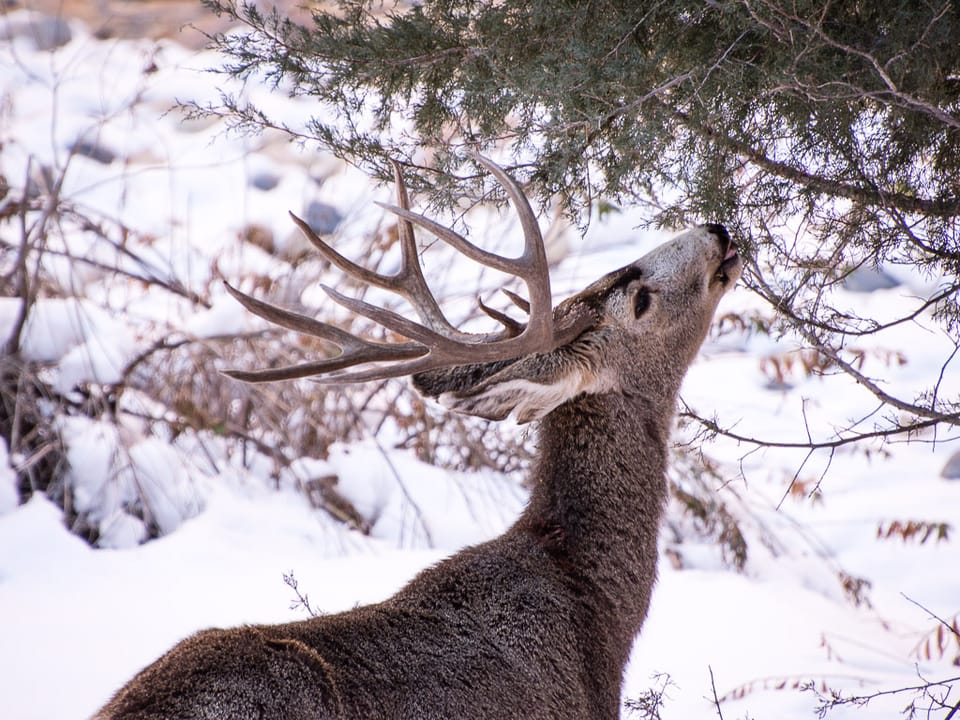EcoWest News, February 11, 2025

Welcome to EcoWest News, a weekly round-up of news and resources that you can put to use in addressing environmental issues and protecting the wild in your community.
There are so many environmental issues that demand our attention, from housing and freight options to light pollution and water. But step by step, we can make a difference.
Across the West
CPAWS is advocating for legal environmental protection of 30% of the land. In Manitoba, they’re meeting resistance from the Manitoba Wildlife Federation that fears restrictions to hunting and fishing. CPAWS MB says protected areas would not restrict hunting and fishing or affect farming and other activities on private land. [Winnipeg Sun]
Five areas of Saskatchewan have received recognition as biodiversity hotspots. They include: Grasslands National Park, Athabasca Sand Dunes, and Burstall, Tunstall, and Webb Sandhills. [Wildlife Conservation Society Canada]
A new, free online course from the University of Calgary aims to help Albertans cut through climate misinformation and better understand the impacts of climate change on their daily lives. [UCalgary]
A BC homeowner has been told he has no standing in a case involving fracking close to his land due to outdated regulations that fail to take into account horizontal drilling. [The Tyee]
“The fight against the Trump tariffs must be balanced with an industrial policy [in BC] aimed at decarbonization. Digging deeper into fossil fuel expansion and simply seeking alternative markets than the United States is not a long-term win for Canada—or the world.” [Canadian Centre for Policy Alternatives]
Across Canada
A report indicates that “building new homes in areas at a high risk of flood or wildfire could force governments, insurers, and homeowners to spend up to $3 billion more each year in costs for rebuilding and disaster relief.” [Canadian Climate Institute]
Around the World
Legal strategies for protecting the night sky against light pollution could be based on individual rights, community rights, and rights of nature. [UCDavis School of Law]
From the port to the porch, every part of the freight system can be cleaner. [Union of Concerned Scientists]
Energy storage and renewables are expanding rapidly in Texas where oil, gas, and solar revenues go to landowners. Alberta, in contrast, has slowed down renewables projects as oil and gas generate provincial revenue but renewables do not. [The Energy Mix]
Climate action must prioritize water – restoring the natural water cycle is just as critical as reducing carbon.” [Dirt]
Making a Difference
Demolition is fast but produces a great deal of waste. With careful disassembly, high-quality materials can be used to make something new. [Maclean’s] We must abolish the right to demolish. [Canadian Architect]
DIY
We have 20 years of evidence that neonicotinoid pesticides harm insects and birds. Don’t use plants treated with neonics in your garden. Write to your local, provincial, and federal politicians to call for stricter regulations. [Birds Canada]
Google Maps offers drivers a ‘saves gas’ option based on traffic, stops, and other factors. In the first 15 months of the program’s operation, users of this new option saved 1.2 million metric tons. [Tools of Change]
Eating more plant-based foods and less meat is an effective way to reduce emissions, but it doesn’t have to be all or nothing. Cutting out meat for short periods (e.g. Veganuary) can have significant climate benefits and lead to longer-term dietary changes. [BBC] So can choosing lower-carbon meat options. [BBC]
Photo credit: https://www.flickr.com/photos/apmckinlay/32409145982
EcoFriendly West informs and encourages initiatives that support Western Canada’s natural environment through its online publication and the Nature Companion website/app. Like us on Facebook, follow us on BlueSky, X, and Mastodon, or subscribe by email.

Member discussion